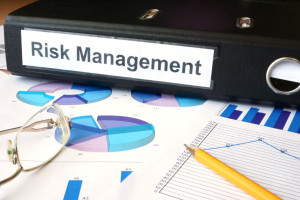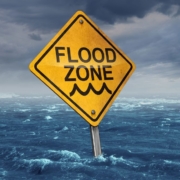You know insurance is important. It keeps you legally compliant and keeps your business assets protected. What you might not think about as important, though, is what to know about the shopping and purchase process. Here’s what to keep in mind:
might not think about as important, though, is what to know about the shopping and purchase process. Here’s what to keep in mind:
- The company matters: Price is a part of the insurance equation, but it shouldn’t be the most important piece. Cheaper is not always better. You want to work with a company that has experience in dealing with claims, an understanding of what your business needs coverage for, and a service team to help you in case you need to file a claim or have questions about your coverage.
- Tell the truth: You don’t want to leave out any information that’s asked for when a company is putting together a quote. Even if somehow you were able to score a lower rate, the insurance company isn’t obligated to cover anything you don’t tell them about or something that they covered under false pretenses.
- Re-evaluate regularly: Insurance isn’t always a one and done deal. Your business changes regularly and it’s important to communicate these changes with your insurance broker. Make sure to actively review your policy paperwork at every renewal period to ensure that your coverage is right for your business. Don’t be afraid to go over your coverage options with your broker. They’re there to help!
Buying insurance doesn’t have to be stressful or complicated. A reputable broker will take the time to listen, explain all your options, and help you figure out what coverage you need to make sure the process is as easy as possible. Let us help design the right insurance program to fit the evolving needs of your business. https://accurateprotection.com/ to make sure that you have the best insurance for your business.


 Preparing a risk management plan is a foundational part of securing your business. There are many kinds of risks that businesses are vulnerable to, and it’s important to have a plan in place to help mitigate damage and keep your business secure.
Preparing a risk management plan is a foundational part of securing your business. There are many kinds of risks that businesses are vulnerable to, and it’s important to have a plan in place to help mitigate damage and keep your business secure. We’ve all heard that story – the “I didn’t know it wasn’t covered” story. People who get in a car accident didn’t realize that they’re not covered for renting a car while their vehicle is repaired, or homeowners find out they aren’t covered for flood damage when they go to file a claim. How do you keep this from happening to you at your business?
We’ve all heard that story – the “I didn’t know it wasn’t covered” story. People who get in a car accident didn’t realize that they’re not covered for renting a car while their vehicle is repaired, or homeowners find out they aren’t covered for flood damage when they go to file a claim. How do you keep this from happening to you at your business?
 risk – and your potential for needing to file insurance claims in the first place – is with a comprehensive fleet management program in place. Here are some ways to improve your fleet safety to improve your business and increase confidence in your company.
risk – and your potential for needing to file insurance claims in the first place – is with a comprehensive fleet management program in place. Here are some ways to improve your fleet safety to improve your business and increase confidence in your company. Accidents can happen anywhere. That’s why it’s crucial that business owners everywhere take workers compensation insurance seriously and understand that it’s a crucial part of your business foundation and not just a nice-to-have benefit or an unnecessary perk. Here are some of the most important things to know about workers compensation insurance.
Accidents can happen anywhere. That’s why it’s crucial that business owners everywhere take workers compensation insurance seriously and understand that it’s a crucial part of your business foundation and not just a nice-to-have benefit or an unnecessary perk. Here are some of the most important things to know about workers compensation insurance.
 protection allows you to know that the investments you’ve made in life are solid and that your hard work can pay off into the future.
protection allows you to know that the investments you’ve made in life are solid and that your hard work can pay off into the future.
 If you own a business, you likely have all your basic risks covered with your commercial insurance program. However, you may be overlooking one very important coverage—flood insurance. As the business owners who faced Hurricane Sandy can tell you, business property coverage does not cover damage resulting from rising flood waters after a hurricane. Without a flood policy, you could face losing any equipment or property damaged by the flood waters. Coming up with the money to replace everything you’ve lost could be difficult, if not impossible.
If you own a business, you likely have all your basic risks covered with your commercial insurance program. However, you may be overlooking one very important coverage—flood insurance. As the business owners who faced Hurricane Sandy can tell you, business property coverage does not cover damage resulting from rising flood waters after a hurricane. Without a flood policy, you could face losing any equipment or property damaged by the flood waters. Coming up with the money to replace everything you’ve lost could be difficult, if not impossible. As the owner of a business, it’s required by law that you have adequate insurance coverage for your assets and employees. Complying with all local, state and federal guidelines helps provide peace of mind and will ensure you avoid an audit or investigation should questions about your operation arise.
As the owner of a business, it’s required by law that you have adequate insurance coverage for your assets and employees. Complying with all local, state and federal guidelines helps provide peace of mind and will ensure you avoid an audit or investigation should questions about your operation arise.